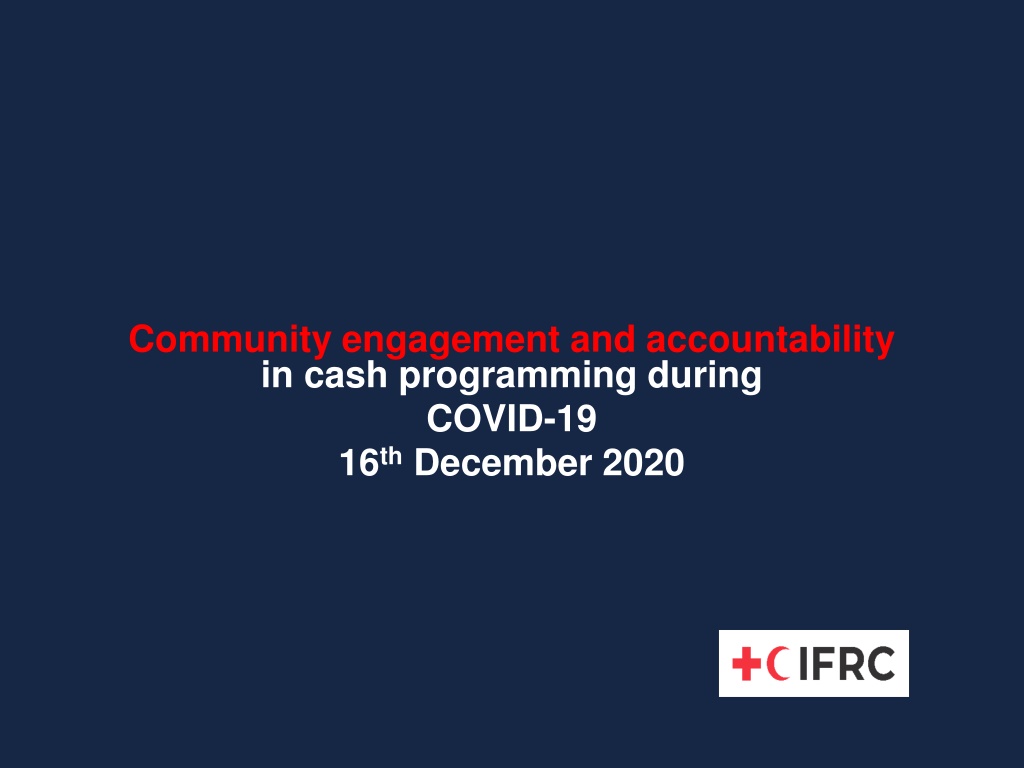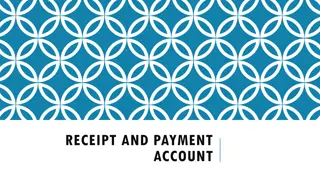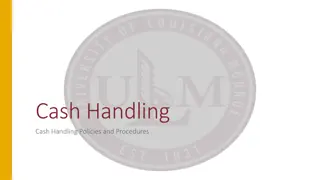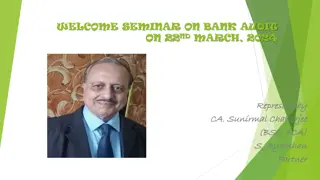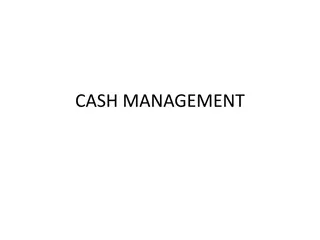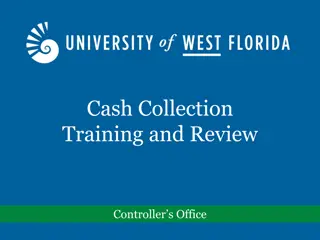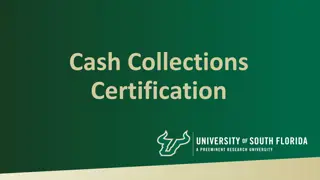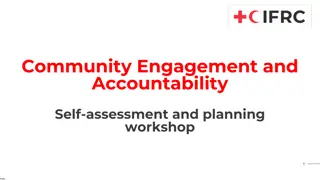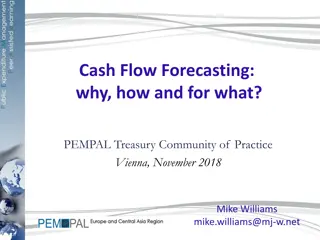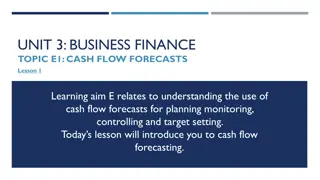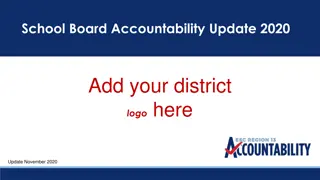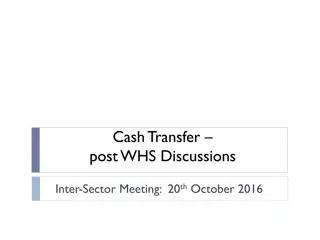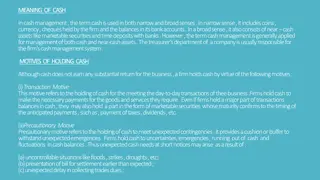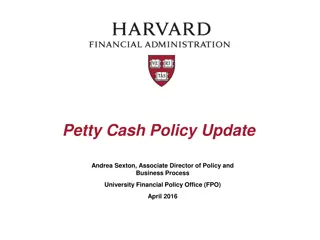Community Engagement and Accountability in Cash Programming During COVID-19
Explore the significance of community engagement and accountability in cash programming during the COVID-19 pandemic. Learn about the benefits, key considerations, common mistakes to avoid, and case studies from Malawi and Zambia Red Cross Societies. Discover how mainstreaming CEA can lead to better responses, increased trust, and early detection of problems, among other advantages.
Download Presentation

Please find below an Image/Link to download the presentation.
The content on the website is provided AS IS for your information and personal use only. It may not be sold, licensed, or shared on other websites without obtaining consent from the author. Download presentation by click this link. If you encounter any issues during the download, it is possible that the publisher has removed the file from their server.
E N D
Presentation Transcript
Community engagement and accountability in cash programming during COVID-19 16th December 2020
Workshop Agenda 1.What is Community Engagement and Accountability? 2.Why is Community Engagement and Accountability important for good quality Cash programming? 3.Key considerations for successful Community Engagement and Accountability in Cash 4.Case studies from Malawi and Zambia Red Cross Societies 5.Q&A
Community engagement and accountability (CEA) is an approach to Red Cross and Red Crescent programming and operations. It is supported by a set of activities that help put communities at the centre of what we do, by integrating communication and participation throughout the programme cycle or operation. Movement Movement Definition Definition of CEA of CEA
What are the benefits of mainstreaming CEA? Discuss 1. Better quality responses & impact 2. Increased trust and acceptance 3. Early detection of problems 4. Saves money 5. Increased community ownership 6. Improved staff satisfaction and retention 7. Preventing sexual exploitation and abuse by aid workers 8. Contributes to Do No Harm programming 9. Helps to manage expectations
Some common mistakes to be aware of in community engagement and accountability POOR NOT RAISING EXPECTATIONS & BREAKING PROMISES UNCLEAR ASSESSMENTS AND DELAYS IN DELIVERY TARGETING IS UNCLEAR OR UNFAIR RELYING ON COMMUNITY LEADERS, NOT BEING CLEAR, ONLY SPEAKING TO DIRECT BENEFICIARIES COMMUNICATION FORGETTING TO TELL PEOPLE WHO WE ARE WHAT WE ARE DOING THERE COLLECTING, USING OR RESPONDING TO COMMUNITY FEEDBACK AND COMPLAINTS FEEDBACK SYSTEM RARE, INAPPROPRIATE OR NOT ACTED ON
Ground Truth research into cash user journeys in Kenya
What communities What communities say... say...
4 golden rules to run an accountable cash transfer programme 1. Find out how communities communicate and function 2. Share information regularly especially when there are delays 3. Explain and discuss targeting CLEARLY 4. Have a feedback system and act on it
Where to get Where to get help with CEA help with CEA CEA HUB: www.communityengagementhub.org CEA Guide & toolkit: www.ifrc.org/CEA CEA toolkit includes: Templates Step-by-step guidance CEA in Cash tip sheet (available on the CEA Hub) Core Humanitarian Standards Sophie Everest, Snr CEA Adviser: Sophie.everest@ifrc.org
